Best New Records I Heard in August
22 Albums that are worth your time, if you happen to feel like enjoying new music
Colter Wall – Little Songs. If you’re gonna sing about a life I’ve never imagined, convince me that it matters. That’s what Colter Wall does with these ten little songs. This is the West, where cattle are still rounded up, where harmonicas and guitars play lonesome duets around fires, where men dream of living as free as coyotes, where dancing a two-step is a bold romantic move, and where writing songs is an act of discovering truth. Wall isn’t exactly a singer, but his deep voice intones his words in a musical manner that fits neatly with the gentle acoustic guitar, pedal steel, bass, and drums backing. There are waltzes and there are blues, and even a blue yodel a la Jimmie Rodgers. An evocative record from start to finish.
Wild Up – Julius Eastman Vol. 3: If You’re So Smart, Why Aren’t You Rich? I missed the second volume in Los Angeles music collective Wild Up’s revival of the work of African-American gay minimalist composer Julius Eastman, but I loved the first one Femenine a couple years back. This time we have three compositions that show off three different approaches to the music Eastman was writing back in the 70s and 80s. The title track is my favorite – it achieves an awkward sublimity with it’s climb up the scale used in the piece towards high notes that come close to breaking glass, played on trumpet and sung by a soprano. All sorts of fun is had across 20 minutes with the notes and chords of that scale. “The Moon’s Silent Modulation” is only ten minutes long, and throws in the occasional spoken word among playful use of non-musical sounds including mumbled conversation imitations, arhythmic hand claps, and vocal impressions of water drops. The third piece, with a name I’m uncomfortable typing, is the pop number, as a 7-note hook slinks around in the background becoming foregrounded whenever the leader shouts, “1-2-3-4” as if he’s Dee Dee Ramone. It’s a real showcase for the piano player, who has to play a lot of repetitive notes at a steady clip without getting much chance to rest. If you’re at all interested in this sort of thing, Julius Eastman is turning out to be one of the best who ever did it.
Brothers Lazaroff – Memphis. David and Jeff Lazaroff have been making albums together for a couple decades now. They’ve had a variety of musicians wind their way in and out of the band, though bassist Teddy Brookins has been making his own invaluable contribution to their sound since the brothers reunited in St. Louis some 15 years back. This new record finds the full eight-piece band augmented by a couple of guests spending a few hours in the legendary Sun Studios in Memphis. It’s all recorded live with no overdubs, and has a vibrant immediate feel. Four of the songs here turned up on an EP they released a couple years back, but these are entirely new and stronger arrangements. Two songs are built around poems from Rabbi James Stone Goodman, the latter of which is the title track telling the tale of his childhood visit to Graceland – I love the way he reads this story, with an archness and a playful refusal to tell the deepest secrets. Musically, this is not remarkably far from the way Bob Dylan has been sounding in recent years, but with violin and trumpet added to the mix, and the trademark Lazaroff yearning vocals.
Chris Stamey – The Great Escape. Stamey never became the household word I envisioned him to be when I first heard the dB’s better than 40 years ago. But it hasn’t been for lack of quality. His work in that band, and across assorted solo records (as well as two duo releases with dB’s partner Peter Holsapple) has consistently upheld standards of melodic invention and creative arrangements. In recent years, he’s been working on some sort of new American Songbook-type material, with a host of impressive vocalists and complex approaches. But this time around, it’s back to the pop/rock he’s got in his blood. A tuneful set of 12 songs (with an extra version of one added on), this record adds a bunch of hits for my personal Chris Stamey charts. Mostly, he’s got love on his mind – the ease of a good partner, the pain of not having a partner, the dream that the right person might become his partner. There are a couple songs about friendship with people going through dark times, and two songs inspired by his past homes in North Carolina and New York. He comes up with a delightful song about the time he spoke to Van Dyke Parks on the phone, too. For those listening online, there’s even a cut which features him reading off all the album credits.
Dale Watson – Starvation Box. I’m used to Watson being a honky tonk troubadour, so this stripped down, sorta folky, sorta bluesy, sorta rockabilly record shocked me at first listen. It does sound better and better every time I play it, though. Watson’s stentorian baritone makes everything he sings authoritative, even when he’s being reactionary on “Whatever Happened to the Cadillac.” He can kick a lover out of his house, he can expect certain descent from every height, he can sing of coal mining and perfect love and desires to change and some strange idea about Leadbelly and a starvation box which, I think, might be his guitar. It’s all done with gusto and fervor, and all kind of conversational at the same time. There’s also a song here which pairs well with one by Brothers Lazaroff on their album reviewed above – they tell a story about Elvis Presley’s tailor; Watson sings of Elvis Presley’s mechanic.
Entoto Band – Entoto Band. I gather this band is from the Netherlands, though it contains Ethiopian and Eritrean members who bring authentic memories to this recreation of a brand of Ethiopian jazz that’s much more lively than the stuff I’d heard on the Ethiopiques releases that used to find their way Stateside. There are still those harmonies and melodies rooted in the cross-cultural African/Middle Eastern mix I’ve heard before. But now the drums are propelling, the saxophones and guitars are honking and biting, and the vocals are enthusiastic. Several of these songs will get lodged in your head if you let them. One – “Yekermo Sew” – is driving me crazy because I’ve either heard an American jazz tune very similar or a previous recording of this Ethiopian number itself.
The Salt Collective – Life. Chris Stamey was not only busy with his own new solo album, he is the driving force behind this new collection of music written (and sometimes performed by) members of Salt, a pop/rock band based in France. Stamey brings along Gene Holder and Will Rigby to play drums on several tracks, and Peter Holsapple joins in on a couple, too. That’s your classic dB’s line-up right there, and heck yeah, I’m excited to hear them all together again. For good measure, Juliana Hatfield, Richard Lloyd, Matthew Sweet, Susan Cowsill, Mitch Easter, and the singer from Nada Surf make serious contributions. The music is exactly as you’d expect from all those luminaries – tuneful, full of surprises, energetic. It’s an absolute delight to experience. Full disclosure: Salt turns out to be the band ex Posies member Ken Stringfellow helped to form after he moved to France after the allegations of sexual misconduct were laid against him a few years back.
East Axis – No Subject. Matthew Shipp on piano, Scott Robinson on saxophones (and occasional trumpet), Kevin Ray on bass, and Gerald Cleaver on drums. These four musicians delivered a fine debut album a couple years back, and they’ve got more improvisational tricks up their collective sleeves this time. Shipp is the only player in this group I know from other records, but he is matched nicely with the other three. There is a nice ebb and flow, both within each improvised composition, and across the entirety of the album. Robinson plays furiously at times on sax, but just as often comes up with nice melodic counterpoints to Shipp’s heavily percussive piano, or he’ll softly rumble sax tones over the rest of the group. Ray and Cleaver are responsive to Shipp and Robinson at all times – the music can shimmer, slide, bounce, drive, and sometimes explode.
Lori McKenna – 1988. Country songwriters don’t come more polished and professional than McKenna right down to the way the first things you notice are the hooks and before you know it you’re invested in the emotional truths of her characters. I’ve read some people are freaked out that her greatest wish for a person in one song is that they have “Happy Children,” but in the context of the song, and in the greater context of the troubled characters on the rest of the album, happiness for any reason is devoutly to be wished. I’ve never had kids myself but I understand her line about hoping parents didn’t mess you up resonates across the spectrum of hoping in all relationships, knowing full well that it’s an impossible dream. Meanwhile, there are memories of childhood and dreams of old age to ponder, and regrets of mistakes and thankfulness for making the right decision In a partner. And, dangit, it’s all so lovingly tuneful.
Knoel Scott featuring Marshall Allen – Celestial. Scott, at 67 and a member of the Sun Ra Arkestra for 40 years, is like a little kid next to Allen, 98 and a member (and current leader) of the band since Scott was born. But this is Scott’s album, even if it’s clearly full of the spirit of Sun Ra. It’s Allen’s spluttering alto sax that we hear first, scattering a flurry of notes at top speed in all directions. Then Scott cools things down with a heavily melodic approach. Piano, bass, and drums follow all the leads. On three tracks, Allen’s signature sound is traded in for something called an electronic wind instrument, which makes the kinds of sounds Sun Ra used to conjure with a Moog synthesizer. Naturally, Scott sings of contact with beings from outer space on the title track. Normally, I can take or leave the sci-fi elements of Arkestra related material, but I have to admit, “Celestial” is a mighty pretty tune. Scott also lays down some gorgeous flute on this one. The rest of the album has a heavily improvised track and two more easily identified tunes. It all goes down easy as long as you’ve had enough exposure to Sun Ra’s music before.
Vince Gill & Paul Franklin – Sweet Memories: The Music of Ray Price and the Cherokee Cowboys. Country music has a long tradition of duet albums, but there haven’t been very many credited to one singer and a pedal steel player. Gill & Franklin worked together on an album paying tribute to Bakersfield country ten years ago. This time they focus on just one Nashville artist, the great Ray Price. I haven’t heard enough of the hundreds of Ray Price recordings in the world to know exactly, but I suspect these songs date back to his early years before he went countrypolitan (not that there’s anything wrong with that.) Gill and Franklin, joined by crack fiddle, guitar, piano, bass, and drums players, sound very much in the honky tonk tradition herein. Gill is one of the smoothest voices in country music, and Franklin supports him beautifully at all times on this collection of smart and tuneful takes on heartache. I’m particularly enamored of this version of “Danny Boy,” which retains its sadness but eliminates all the schmaltz so common to it.
Beth Bombara – It All Goes Up. Bombara has been hanging around the St. Louis scene for a number of years now, releasing albums now and then, threatening to break through into the singer/songwriter national scene. She deserves to be noticed with a record as solid as this one. Bombara writes way more interesting melodies than most – the songs are sturdy, eminently singable. She has a rich alto voice and a keen sense of phrasing. But what really sets her apart are the arrangements – a pedal steel here, a violin there, her own classical guitar picking when necessary, and some perfect electric guitar solos. I keep coming back to the song “Everything I Wanted,” with a bright and energetic chorus saying a rare thing in pop/rock music – I feel good right now.
Andy Fairweather Low – Flang Dang. His is a name I’ve seen many times and a voice I’m sure I’ve heard – if nothing else, he sang on some Richard & Linda Thompson records, and I’ve heard all those. He’s worked with some of the biggest names in rock – the Who, Eric Clapton, Roger Waters, George Harrison, Bill Wyman. But most of what I know about him I gleaned from his Wikipedia page – he had big hits in England in the 60s when he was in a band called Amen Corner which has never crossed my path in any way. I’ve seen his solo albums before but never heard them. This new album is an absolute pleasure of a record. At 75, he sounds like an old man singing – the notes are fine, but there’s a bit of spit in the vowels. He offers us eleven supremely catchy infectious grooves with rockabilly, ska, and gospel in the DNA. There are no guitar solos. It’s all simple, impossible to resist music with a sense of humor in the lyrics and an urge to dance in the sounds.
The Hives – The Death of Randy Fitzsimmons. It’s easy to play loud and fast rock’n’roll – that’s kind of one of its main virtues, right? But, OMG, there are so many boring loud and fast rock’n’roll bands now and in the past, almost all of them seeming to have a very limited imagination as to what guitar licks, vocal melodies, and drum beats they can play. Not so the Hives. The Swedish band has been far and away the most exciting, inventive, and just plain fun fast and furious rock band this century has seen. It’s been eleven years since their last album, but they haven’t lost their touch. Hand claps, horn charts, electronic sounds – they augment their two vocalists, two guitars, bass, and drums sound whenever they feel like it needs something else. Their music bounces in a way that few such bands even contemplate – as a result, it feels more like a good time party than an assault on convention. The Hives don’t waste time – this album lasts just over a half hour and not a single note is inessential. So glad they’re still around!
Johnathan Blake – Passage. Blake is the son of the late jazz violinist John Blake, who made some records I liked quite a bit in the late 80s. The younger Blake is a drummer, and a composer, and a band leader. This is apparently the second record he’s released with this group which includes vibraphonist Joel Ross and alto saxophonist Immanuel Wilkins up front, along with David Virelles on piano and Dezron Douglas on bass. These five players work beautifully together on a record that doesn’t follow conventional mainstream jazz paths and yet shouldn’t scare anybody away even on the rare passages pushing a little discordant harmony. Mostly, this is an album of elegant melody, supple support, and emotive distinction. Ross is, as one would expect, the star of the band, but he never overwhelms the music.
The Rain Parade – Last Rays of a Dying Sun. Way back in 1984, the Rain Parade was the first Paisley Underground band I heard. I was hooked right away on the concept (especially on account of the fact I had some paisley shirts my mom had bought me in high school, but I didn’t realize they were cool until this movement). I loved this band back then, and I still love them 35 years after their previous album came out. Matt Piucci and Steven Roback are still at the helm, trading vocals or harmonizing, as appropriate for each song. Piucci and John Thoman still deliver the real goods on guitars – swirling, thumping, bending, and arpeggiating at different times. It’s the sound of this band that makes their decent but not necessarily great songwriting way more effective than it could be. “Angel Sister” leads off the record, and if nothing else quite reaches the heights of that single, nothing falls very far below it, either.
That Mexican OT – Lonestar Luchador. Well, here’s a world I haven’t investigated before – Mexican hip hop. That Mexican OT was born in Mexico and raised in Austin, which explains why all this focus on south of the border culture is rapped in English. OT loves reefer, guns, and fucking, which is not anything too rare in hip hop, but his approach strikes me as unique. He’s a gangsta who sounds more playful than badass, not that he doesn’t sound hard. Nobody gets killed, and women are encouraged to reach orgasm. His rapping is fleet, intense, witty, and styled. He also brings in a ton of guest stars, not one of whom I’ve ever heard before. The production is built on Mexican beats and sonics as much as anything else. Heck, even the skits, which all feature Ralph Barbosa Jr, make me laugh – “Nothing can beat good old fashioned marijuana and masturbation.”
Megan Moroney – Lucky. I think I count 18 different co-writers across these 13 tracks, with most of them requiring four pairs of hands to dot the I’s and cross the t’s. That’s how they do it in mainstream country these days. But Moroney is the first name listed on each song, and there is a clear enough consistency in lyrical tone and melodic strength which makes me think she brought some pretty good material to the writers rooms every time. The single “Tennessee Orange” did pretty well last year, I think. I don’t know how they figure out which songs to pick as singles, though, since I think at least half of these album cuts are catchier and even more clever. Me, I’d go with either “Sleep On My Side” or “Another On the Way,” as both twist expectations in quite a delicious manner. Also, kudos for writing a song about Johnny Cash and June Carter that foregrounds June’s experience and works as a question about Moroney’s own potential beau.
Tamara Stewart – Woman. Stewart is an Australian country singer-songwriter who moved to Nashville a few years back. This new record is an astonishingly good collection of songs, many of which concern women’s issues. “Just a Woman” references James Brown and Tammy Wynette to show how little things have changed since the 60s. “Like a Man” is a pure sex romp. “The Orphan” concerns the feelings of a woman who never had children. And album closer “Mondays” is a harrowing tale of the way an unnamed five minute incident can ruin a woman’s life. All of this is tuneful, sharply arranged, and sung with a passionate efficiency. As good a country record as I’ve heard this year.
Mighty Poplar – Mighty Poplar. In bluegrass circles, everybody plays one of half a dozen or less instruments, and when people get together, they can always find some songs in common to jam on. Punch Brothers have bluegrass instrumentation, but don’t very often play that kind of material. So two members of that great band – banjo player Noam Pikelny and guitarist Chris Eldridge – teamed up with fiddler Alex Hargreaves (currently in Billy Strings’ band), mandolinist/vocalist Andrew Marlin (from a group called Watchhouse I haven’t encountered), and Leftover Salmon (and one time Punch Brothers bassist Greg Garrison to play the kind of music that’s in their DNA. While this is clearly a bluegrass record, the songs aren’t exactly common garden variety material. These exceptional instrumentalists play Leonard Cohen’s anti-war classic “Story of Isaac”; Bob Dylan’s version of the folk standard “Blackjack Davy”; and John Hartford’s steamship-set (as are most Hartford songs) “Let Him Go On Mama.” It’s all extremely comfortable, extremely well played, and full of unexpected twists.
Rhiannon Giddens – You’re the One. She’s come a long way from her days as star among equals in Carolina Chocolate Drops. Giddens has the chops and the depth to handle all sorts of different music. On display this time is rock, blues, jazz, folk, Cajun, and some other combinations of the above. I tend to prefer the second half (side 2 for you LP heads), which has the strongest set of songs – she wrote all twelve cuts here. Side by side with the aforementioned Tamara Stewart album, these tracks paint an even richer portrait of women’s contemporary experience. “If You Don’t Know How Sweet It Is” slaps unappreciative men hard in the face. “Hen in the Foxhouse” contains the line “I don’t care how big it is, just keep it out of my way” as a celebratory exclamation. “Who Are You Dreaming Of” is her more than decent stab at a Great American Songbook type song before the classic 20s-style blues of “You Put the Sugar in My Bowl” which demands female pleasure. The whole record is a dang good time.
Joel Paterson – Wheelhouse Rag. I know very little about ragtime and its offshoots. I do know Joel Paterson from his work with the likes of Kelly Hogan and J.D. McPherson. So, I gave this a shot, and it’s an absolute pleasure of a record. Fourteen original solo acoustic finger picked guitar compositions, most related to the ragtime form, all catchy and upbeat, none reaching the three minute mark. It’s a record that makes me happy every time I hear it. The technique required to play this stuff is breathtaking, and yet the music is so strong I only think about that after it’s done.
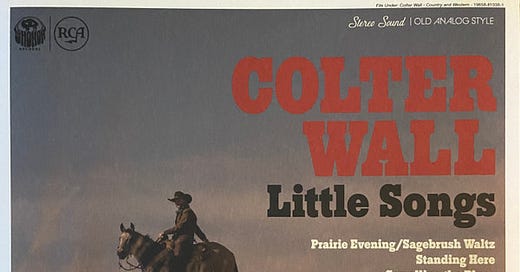




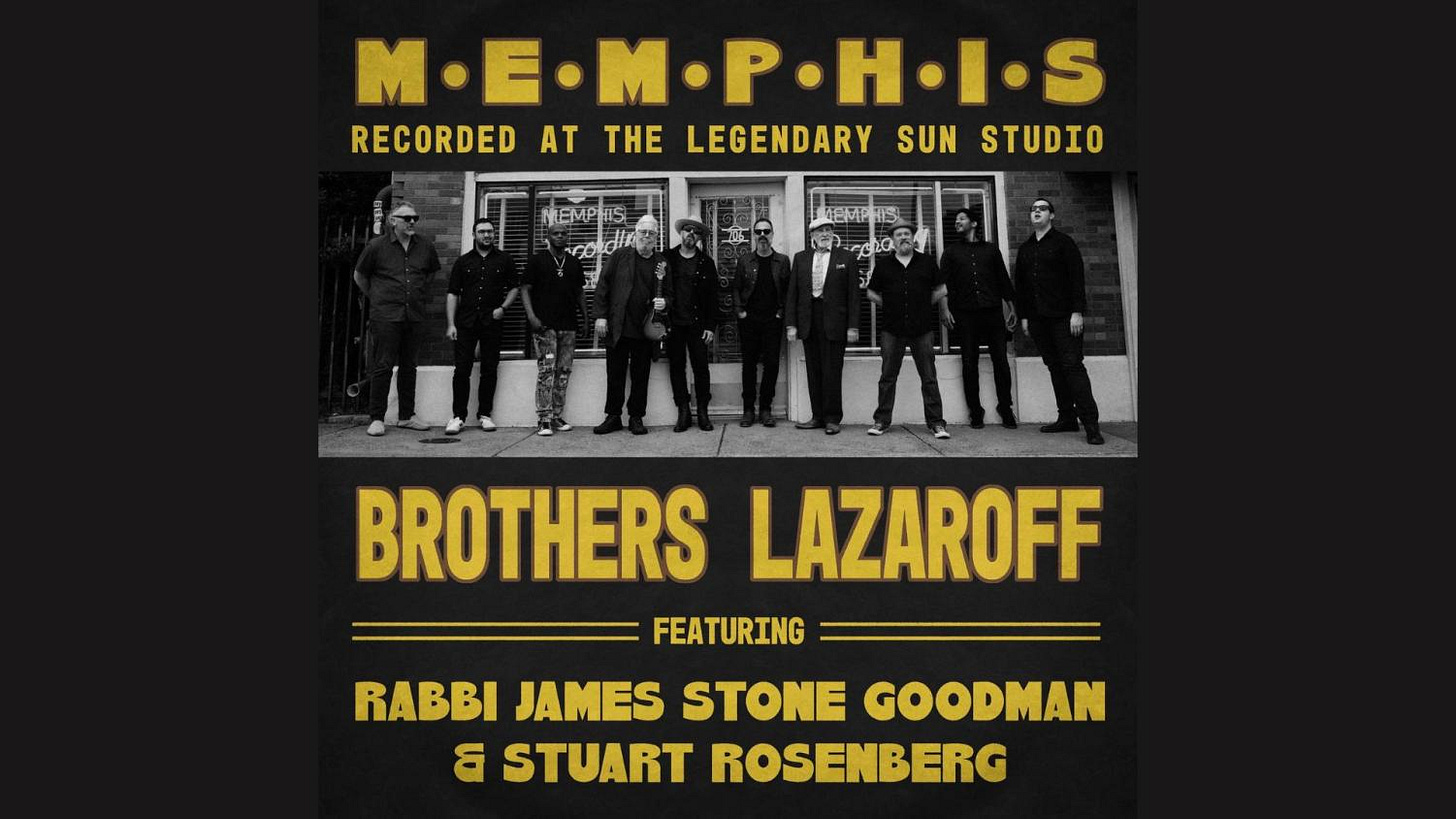
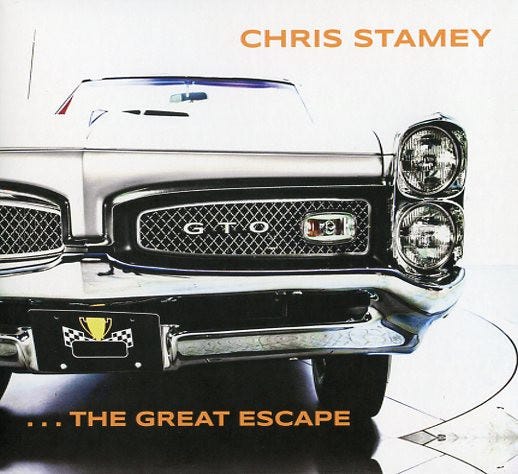
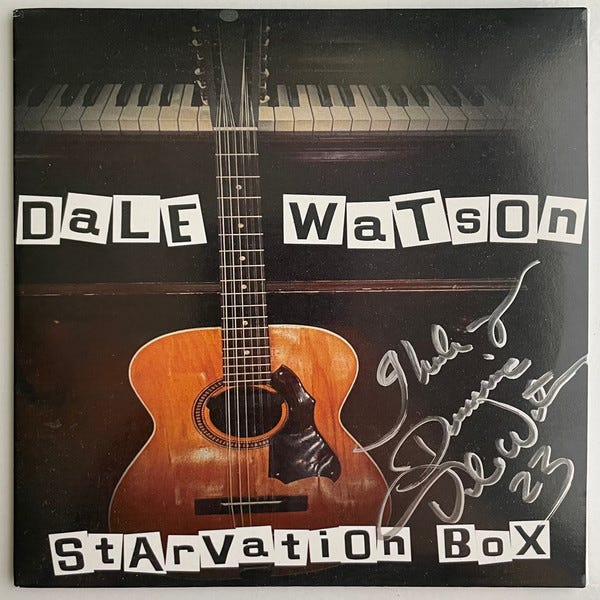

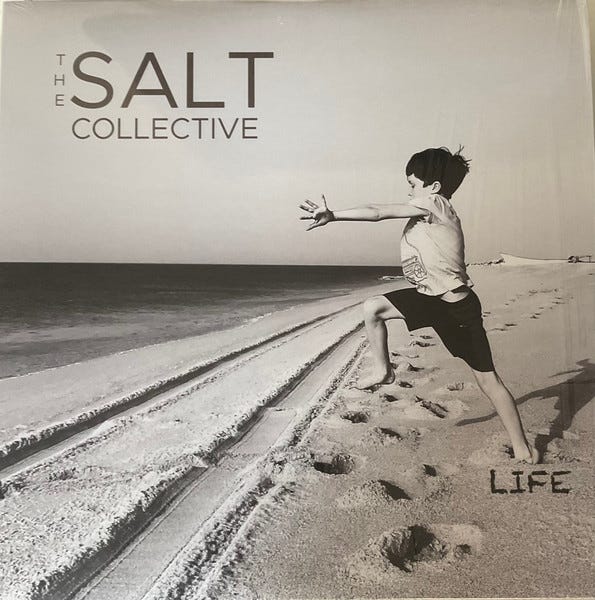
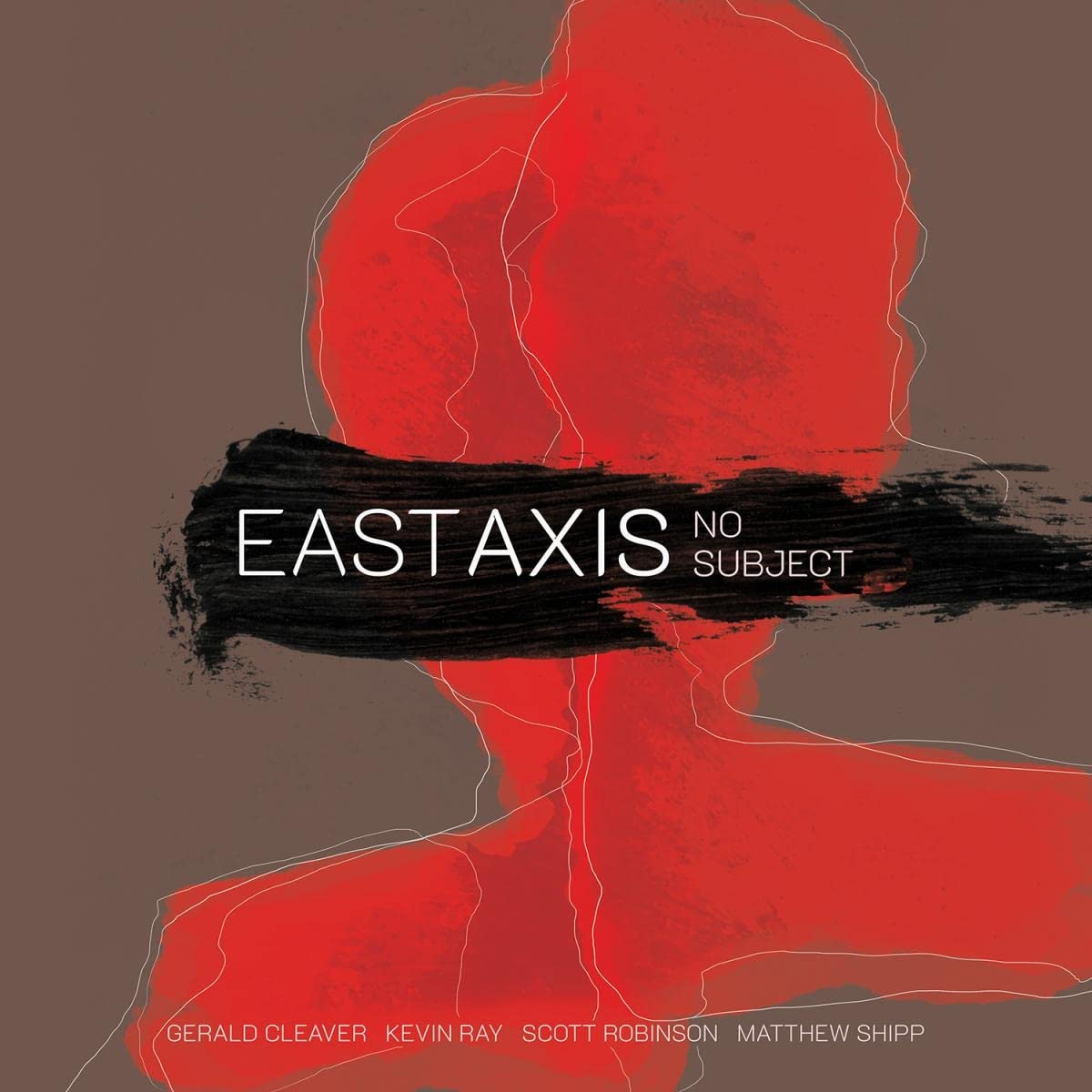
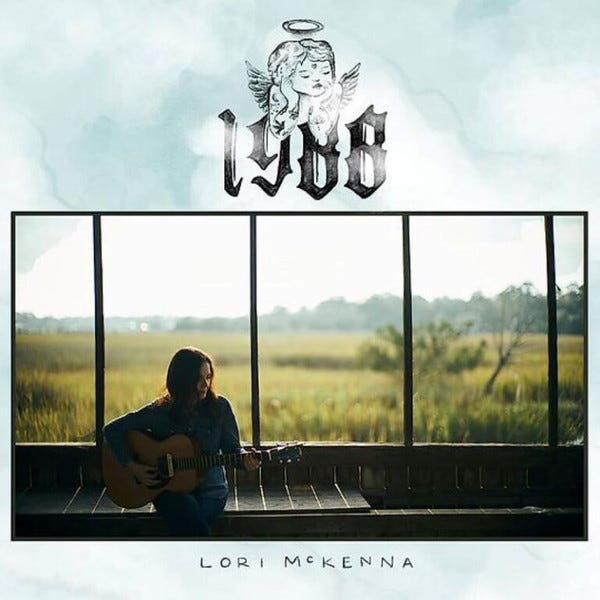
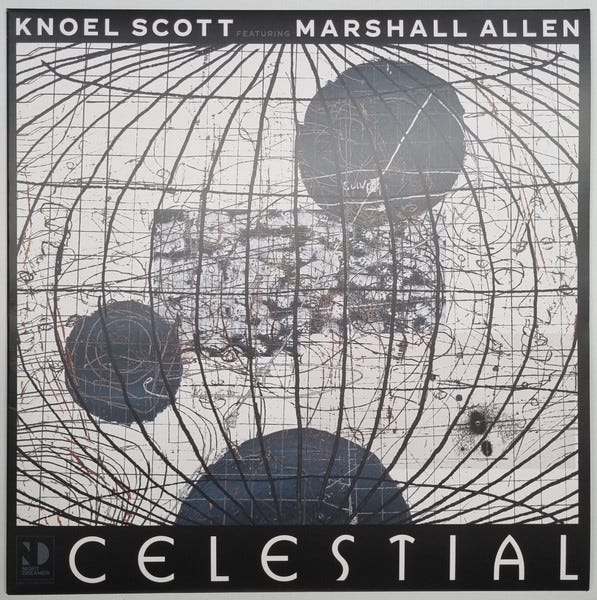
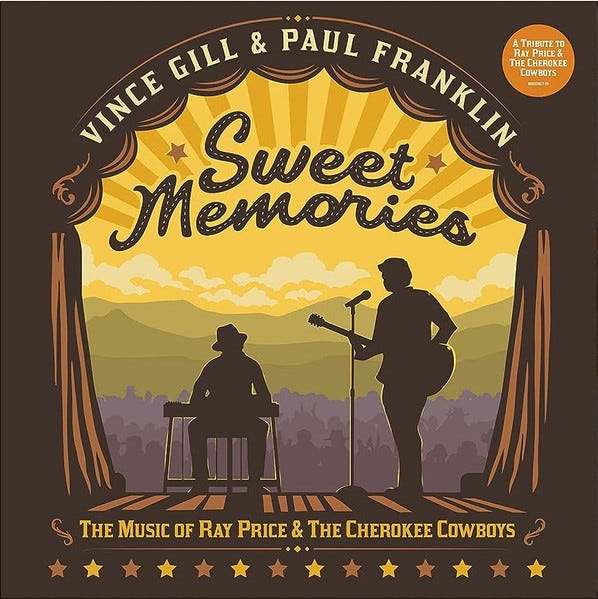
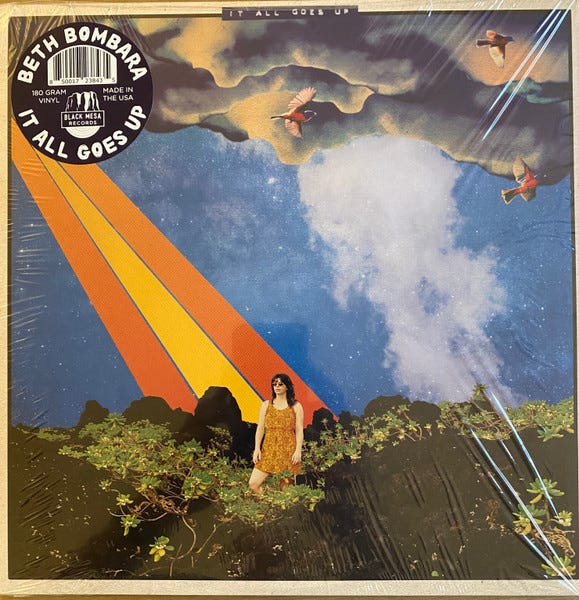
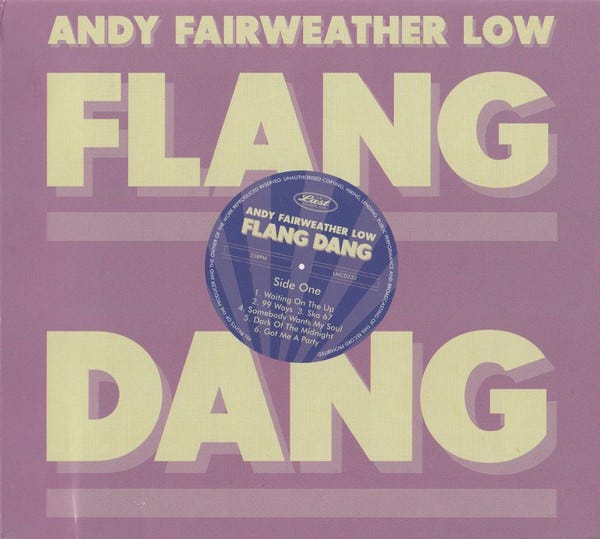
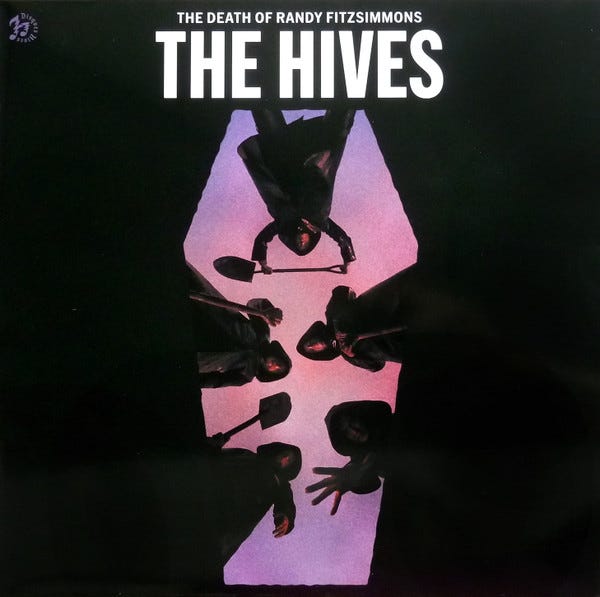
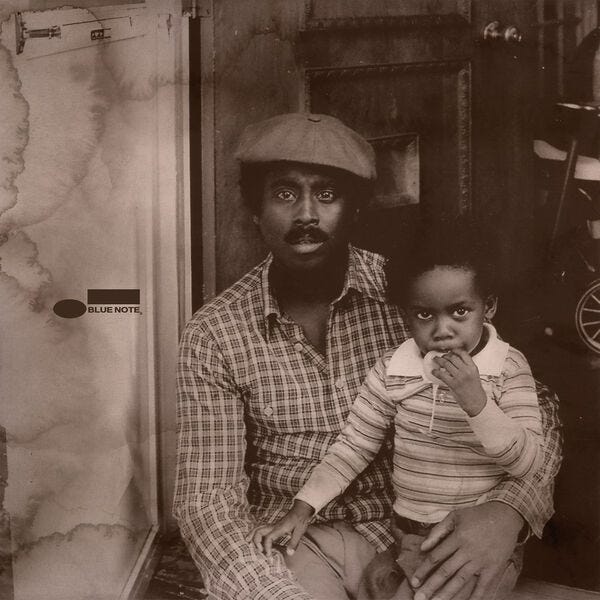
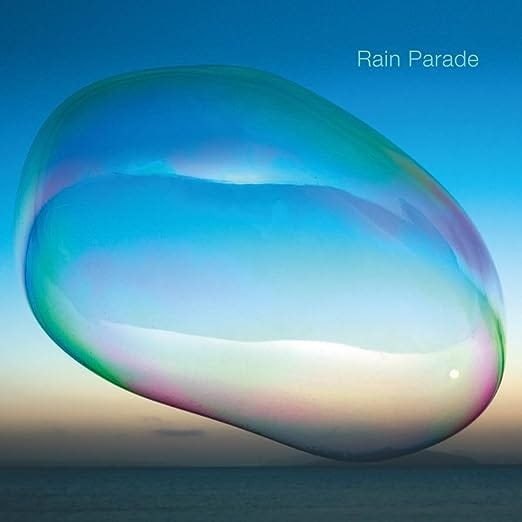

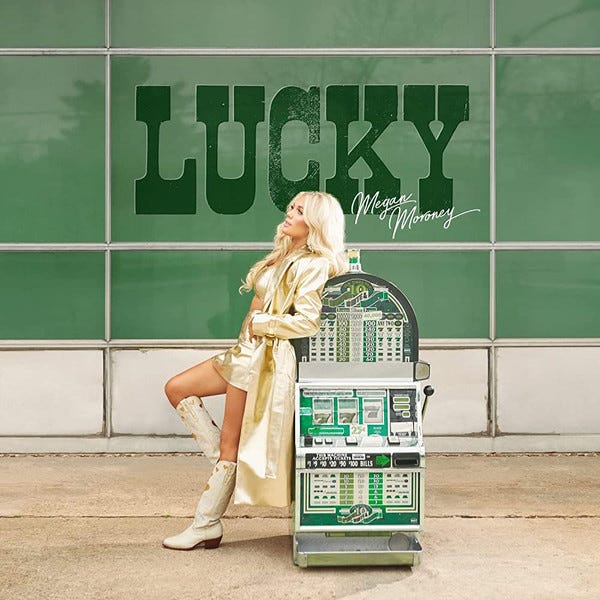
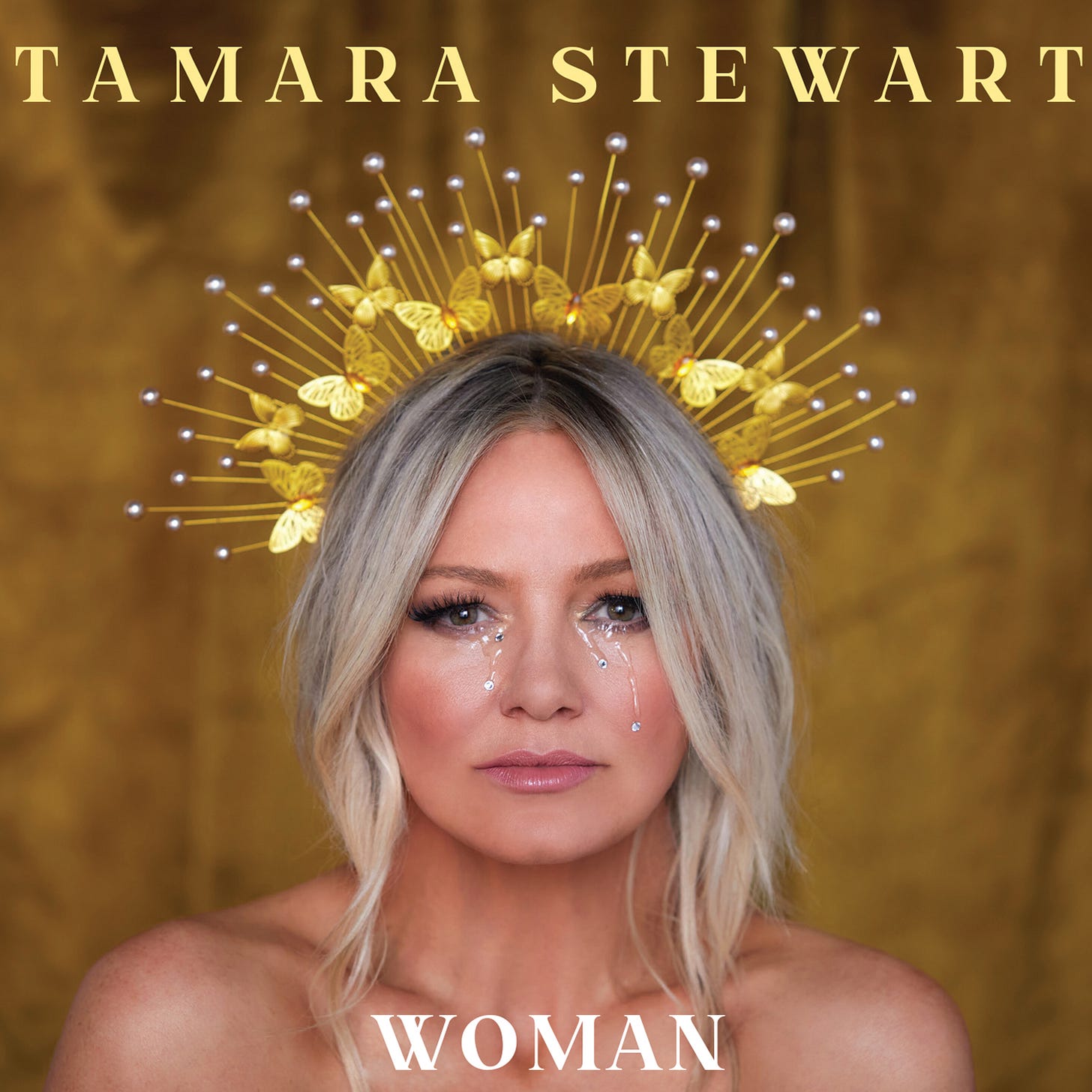
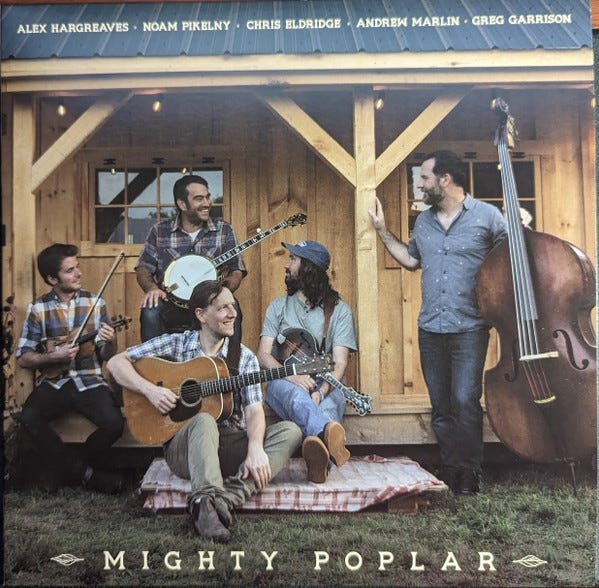
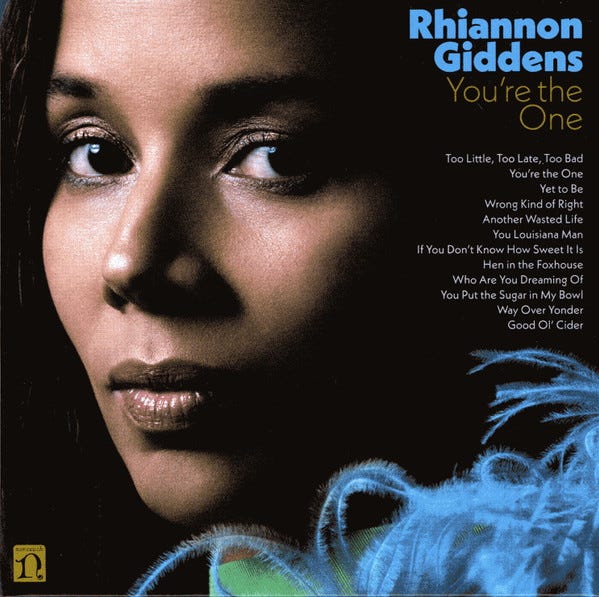
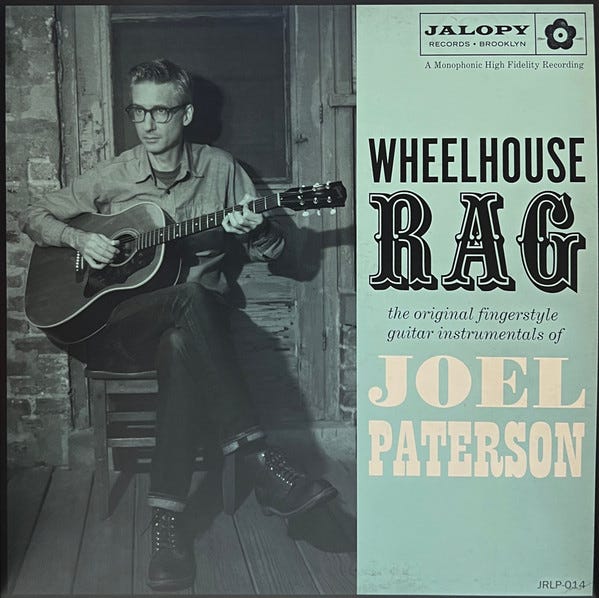
What a fine collection of reviews - knowledgeable, well and evocatively written - that encourage one to get listening. I have a few of the records and immediately ordered another and was unable to find three others on one very quick look. I'll go after them again and then try to pace myself on yet more. Regarding Andy Fairweather-Low, I recommend his three solo albums from the '70s, which I think are available on one CD.
Thanks for the prompt on the Rain Parade, in particular. Will seek it out today.